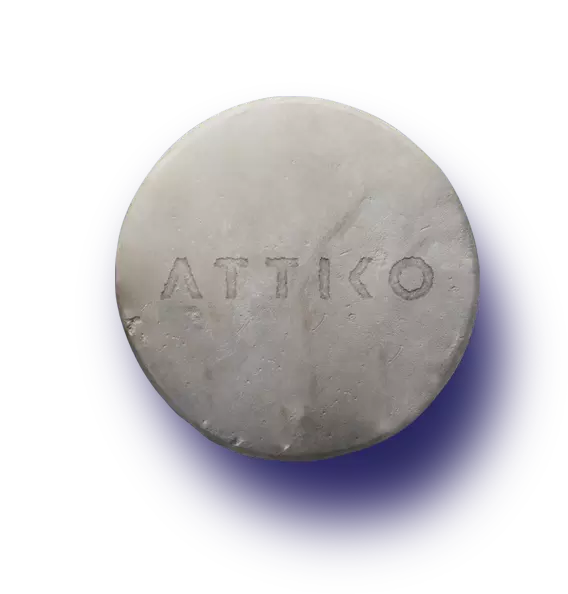Baby Food
A full digital transformation
of the FMCG brand
Project essence
- 50x functional scalability
- 3 times increase in the speed of feature delivery (from 6 to 2 months)
- 10 times faster time-to-market of new websites
- By 10 times decrease in the number of bugs
- In 77% of cases the security scan is passed on the first try
- 100% GDPR, MOBILE, and SEO friendly
- $8 million annually cost savings on hosting in case of moving of all corporation branches
Project background
About a client
Our client is one of the divisions of the international FMCG Corporation. Being a large player in the baby food market, the company produces a new generation of foods for infants in the first months of post-natal life.
How Attico got involved in the project
Before the project, our company had earned success and mutual benefit in cooperation with another branch of the FMCG Corporation, which recommended us to a baby food manufacturer as an experienced Open Source developer.
We were accepted into the project since we fit the following criteria:
- Years of experience in dealing with similar FMCG corporations, excellent knowledge, and a strong understanding of the project's business part.
- Deep expertise in Open Source development, in particular, Drupal.
Situation analysis
Each local branch of the company has a website. In total, the company manages 50 websites, which are divided into three time-zone groups. The company got a digital web presence with an Open Source CMS platform written in Drupal 7.
The platform was provided with the required functionality and tools that allow managing corporate websites easily. However, the company needed professional assistance in optimizing the business goals of the websites.
Challenges of consumer goods company
Business challenge
Our client's brand is a brand with a history. Over the decades, the company has managed to maintain a high-quality offering and receive worldwide recognition. But the other side of the coin is that young and innovative brands are breathing down the company's neck.
The company realized that losing market share is a valid reason for putting going digital.
Client's business goal
The primary business goal of the corporation is a complete digital transformation as an ability to act and react to changing conditions and strategies to succeed. The company wants to make the brand fully mobile.
The corporation's marketing strategy is based on an absolutely revised approach to the website. Marketing to young people as the core target audience was a new business practice that required different features and custom functionality of the website.
Local specificity issues
Each local market of the corporation has a different demand for products. It means some products are among top-selling items in one area, but not so popular in another. Therefore, our task was to develop functionality so that products could be positioned differently on each local website.
Technical challenge
Drupal 7 will reach end-of-life in 2022. So the company assigned the task to Attico experts to migrate all 50 websites from Drupal 7 to Drupal 8. We redesigned the website and moved it to the other hosting provider simultaneously.
The company also required to improve the existing Open Source CMS platform. The Attico team had to:
- create a website visual identity that aligns to the brand;
- cheapen technical support;
- eliminate the corruption factor;
- provide digital support to local representative offices;
- make websites easier to manage.

Solution: digital transformation using FMCG software solutions
The company noticed that mobile phones had changed the way the target audience engages with the brand – customers prefer to visit a website, search for products, and buy through their phones. Indeed, if previously the company had to fight for the best shelf space it could get, now it has to fight on the battlefield for the space on the user's mobile phone.
Thus, when developing a new website design, we followed the mobile-first design strategy. Website designing for mobile devices takes priority over desktops, so only after the approval of the layouts for mobile devices, we developed the desktop ones.
The design of the mobile version has been worked out so thoroughly that the company's mobile app will completely copy it.
One of the most challenging tasks was to develop the AI engine. To accomplish this task, the Attico team held many meetings with the company's representatives. We learned how the company defines the target audience, what marketing forecasts and hypotheses they put forward.
We created seven different AI algorithms and presented them to the company. After the setup stage, we launched a pilot project of the given algorithm in one of the Asian markets.
The algorithm is used in the Related Articles, Related Products, Related Tools & Services sections. It increases the likelihood that after reading a certain article a user will glance through the recommended ones and learn about the products that suit them best.
It also increases the visitor's average time spent on the website. In turn, keeping customers on the website as long as possible leads to improved conversions.
The AI engine is employed in the user's personal account in the Best Match for You section. Based on user behavior, our algorithm recognizes his/her interests and suggests articles on topics that the user may want to read and subscribe to. The key goal is to increase the probability of clicking on the recommended articles.
First. Content
The company's websites contain a lot of useful content: articles on nutrition, growth, and development, recommendations, expert opinion, videos, etc. Their purpose is to provide parents with explanations and information on healthy feeding and nutrition for children. Consistency is critical for making a user's habit stick: they come to the website over and over again to read the content, to find an answer to the question, or ask for advice.
Second. Related Tools & Services
The company's target audience often searches the net for such tools as pregnancy calendars, pregnancy due to date calculators. To meet the clients' demands, FMCG Corporation developed such products and services. Our team included them in the Related Tools & Services section. The purpose of these tools is to bring users back to the website.
First. User's Personal Account
A personal account is the user's individual area employed for creating/editing profiles, indicating interests and preferences, subscribing to topics. In the personal section, the user receives newly-published articles on the topic-based subscriptions, as well as product recommendations grounded on their shopping cart.
Second. Analytics
Attico experts use analytics for monitoring customer engagement. We turn data into information and information to insight. Tools and services make users leave digital footprints. For instance, if a customer uses the pregnancy calculator, the system concludes that they are expecting a baby, finds out the due date, and recommends the relevant content.
Besides, the system analyzes the information presented in the user's personal account. For example, based on the child's current age, it can predict what the parent will be interested in soon.
By collecting and storing user data, we provide users with personalized content. At the same time, we appreciate the importance of GDPR and compliance with it, since children's personal data is subject to special protection.
All company's websites are completely GDPR-compliant thanks to SAP CIAM (Customer Identity and Access Management) platform, a tool recognized in Europe as a standard for storing user data.
Each company's brand has its own section for presenting products on the website, which also includes textual content, promo blocks, filters, user reviews. Besides, each section contains a brand-story video as it is one of the most effective ways to increase the conversion rate.
Being a master of its section, each brand can integrate with privileged online or offline stores. The Find Store section provides information about in-store leftover inventory.
The section also contains the Recipes block with healthy baby recipes and meal ideas, based on the brand's products. Its goal is to introduce the brand's products, influence consumers to take action, educate them on how to use the brand's product line, and increase conversion.
Technical solutions: enhancing Open Source CMS features

Website builder
The division of FMCG Corporation assigned us the task of making the website as convenient as possible for administration by non-technical managers. With this in mind, we developed website features and functionality as manager-friendly as possible.
For this purpose, we developed an extremely convenient website builder that makes it possible to create a separate webpage without any technical skills. All manager needs to do is insert text, images, and check the required fields.
Implementation of marketing tools
We implemented the necessary marketing tools integrations for each local market. For example, in some markets, the company's email marketing benefits from MailChimp, while in other Adobe advertising platform is popular. Our team had to provide a convenient interface and effective marketing tools for each local website.
Customizable out-of-the-box solutions
The company's websites are content-heavy ones. It means they should work properly. Therefore, we provided an out of the box solution that contains everything the company needs for SEO, all the tools and services, AI algorithms.
At the same time, the company can customize the website functionality to achieve its business goals in each local market, prioritize content and products to meet the customers' needs.
Technical hurdles
This project was quite challenging since, on the one hand, we had to complete the assigned tasks quickly and launch a pilot project in one of the markets within six months. On the other hand, we were faced with the task of making a tool that will effectively scale to 50 local markets.
The most difficult was to create the correct software architecture. When developing each feature, we carefully assessed how it would work on 50 websites and how technical support would be provided in three time zones.
As a result, our client benefits greatly from scaling. While developing new functionality, we provided the necessary technical capabilities to ensure its smooth running on all 50 websites.
Hosting
Since cloud hosting of the Open Source CMS platform is designed to locate the servers as close as possible to the target markets it reduces hosting costs and at the same time increases the delivery speed.
Result of FMCG company
functional scalability
increase in the speed of feature delivery (from 6 to 2 months)
faster time-to-market of new websites
decrease in the number of bugs
of cases the security scan is passed on the first try
GDPR, MOBILE, and SEO friendly
cost savings on hosting in case of moving of all corporation branches










